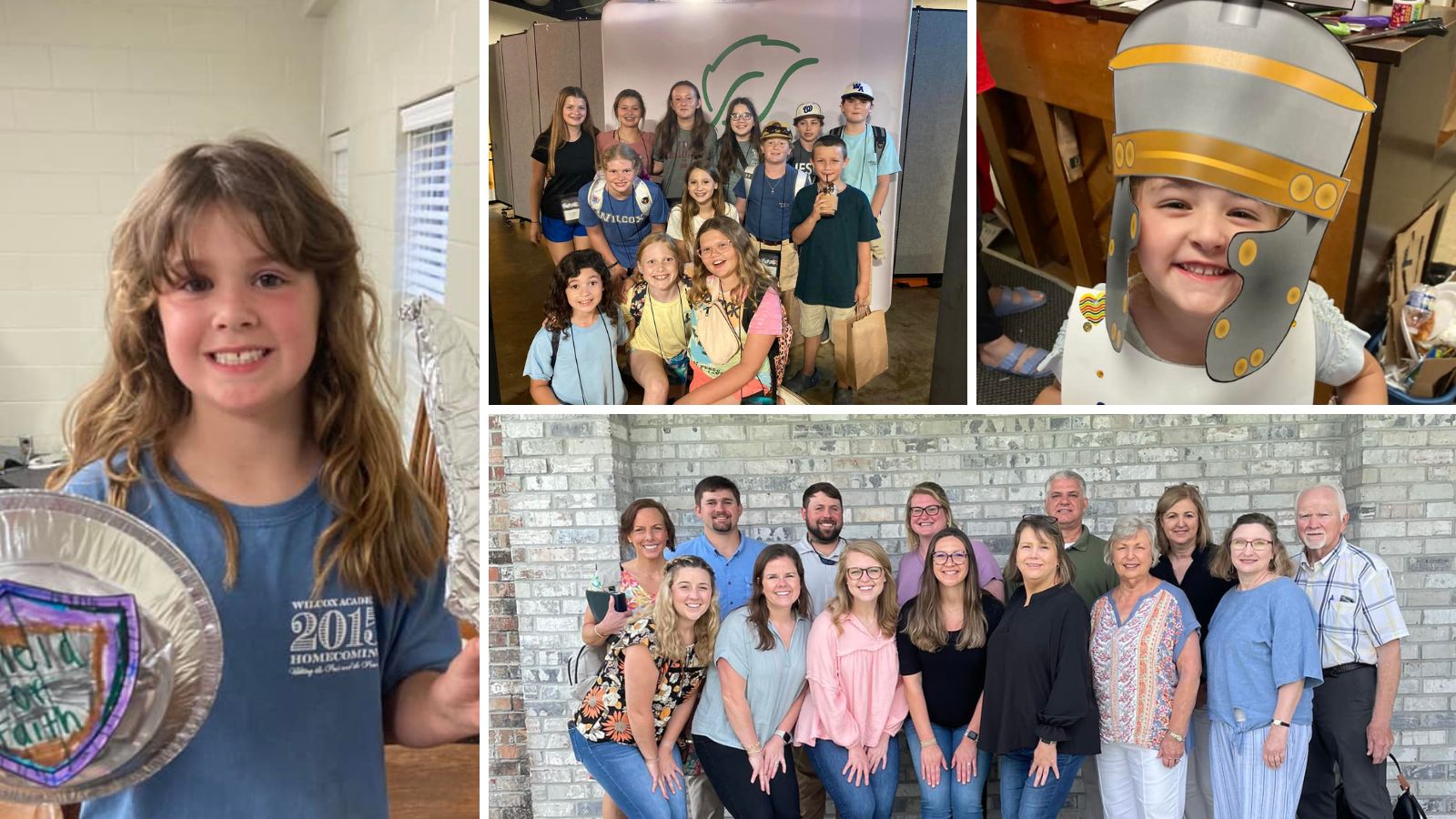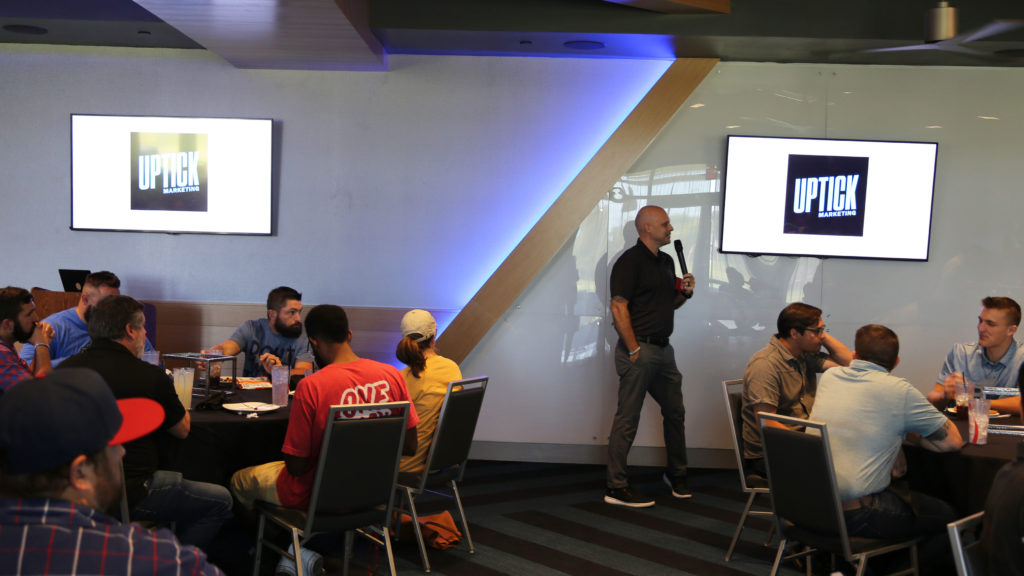When Rob Jackson was taking a group of pastors to a retreat center, he received a phone call that sent chills down his spine.
“Have you heard what’s happening at Asbury? Chapel has been going on for hours,” his friend said. “Do you think [revival] could be happening again?”
Jackson, director of the office of church health for the Alabama Baptist State Board of Missions who received Christ during the 1970 revival at Asbury College (now Asbury University), prayed it was so and headed to Wilmore, Kentucky, to see for himself.
The spontaneous event spurred from the fervent prayers of a small group of college students and resulted in more than 50,000 people flocking to Asbury to encounter God’s Spirit. It contrasts with Southern Baptists’ historically scheduled revivals with preaching and singing services.
Five months later, is it still possible to catch this sweeping wind of the Holy Spirit? And how can Alabama Baptists truly experience revival?
Meaning
To start, it’s important to know the word “revival” is often misused or confused among churches.
“I hear people say, ‘We want real revival,’ but they’re not even sure what that term means,” explains Sammy Gilbreath of Gilbreath Ministries. “The very word ‘revival’ is addressing believers, calling for them to have a new commitment, a new passion and zeal to serve the Lord.”
“We always think about whether a revival is successful or not successful based on how many souls got saved,” added Terry Long, SBOM spiritual renewal and evangelism specialist. “(But) revival is for the Church. It’s for believers. It’s a fresh pouring out of the Holy Spirit upon the people of God.”
This means evangelism and revival are not the same.
“Evangelism is down the aisle. Revival is more across the aisle,” Long clarified. “So revival has a lot to do with Christians getting right with God and getting right with each other. Evangelism is bringing new life to lost people. Revival is bringing new life to the Church.”
How?
Although the Asbury revival wasn’t a human-planned event, it started with believers crying out to God — and God, in His grace, met them there.
“We were locked in for decades and decades that [revival has] got to happen on a Sunday morning through Wednesday night or a week of meetings, but when genuine revival breaks out, it could be anytime,” said Long, author of “When the Fire Falls: Ten Characteristics of Genuine Revival.” He’s taught more than a dozen Alabama Baptist associations on the subject.
“Most of the time, [revival] comes out of prayer,” Long said.
Daniel Wilson, director of SBOM’s office of evangelism, agrees.
“Revival is saturated in prayer, governed by the Word, brought through the Holy Spirit and expressed in worship,” Wilson said.
When this occurs, believers often excitedly tell others what’s happening.
“There’s a saying in revival groups that the flame of revival is spread by the fame of revival, or the revival spreads on the wings of testimony,” Long said. “People hear about it, and they want to be a part of it.”
The early Church is the gold standard for what ought to be happening, Long said.
“Then we look at our churches. And it’s not happening; it’s never happened,” Long said. “There’s a big gulf between what we see in the Bible and what we see in our own personal experience. That begins to create a hunger and a desperation for the real thing. That’s where revival begins.”
The result
Although revival may be temporary, it has a lasting effect.
“When revival has genuinely been experienced, it’s not just an emotional response or a time of worship; it affects the way that we live,” Wilson said. This results in a “spirit of repentance and a renewed commitment to obedience.”
“Once you’ve tasted and seen revival, that hunger never goes away in your life,” said Jackson, who has experienced multiple revivals.
Although the news and social media have been seemingly quiet about revival currently in the nation, Jackson believes it’s still taking place.
“The way revival usually happens in a great awakening is that there will be a downpour and a little puddle, and then another puddle over here and another puddle over here. Those begin to rush together and form a river. It’s a process.”
Jackson is seeing that process in pockets of Alabama Baptist churches.
About a year and a half ago, Camden Baptist Church in Camden had zero children in the nursery.
“People were in desperation. They began to seek the face of God and the senior adult ladies would go and kneel down in the nursery, begging God for children [to be in the church],” Jackson recalled. “The first answer to their prayer was that a 40-something-year-old lady got pregnant.”
Now that nursery is filled with children, and they’re asking for more volunteers. Church attendance has more than tripled, and people are accepting Christ as their Savior.
Jackson also described how another church, First Baptist Church Florence, only had one college student. The church prayed, “God, would You help us reach more people?” In the past several months, 13 college students have been baptized and more than 70 college students attend.
Samford University in Birmingham and Campbellsville University in Campbellsville, Kentucky, have both experienced student revivals too.
“This summer, I’m excited as [these students are] going to different places and their homes,” Jackson said. “I’m just praying we’re going to continue to see these puddles of God’s grace and pray they will unite into a major river.”
Despite how bleak the world may appear, Wilson believes revival is always possible.
“We’re people of hope,” Wilson said. “The old saying is, ‘The deeper the dark, the brighter the light.’
“The darkness of the world that we’re living in is just a wonderful backdrop for God to display His glory, and to shine His light. I was never among the doom and gloom prophets (thinking) that God had passed us over. No, because Jesus is alive, there’s always a reason to have expectancy that He’s going to break through.”
Are traditional methods still worthwhile?
If you’re second guessing whether your church should have a planned revival meeting this year, here’s your answer: Yes.
Any time to focus on God is better than none at all.
“I do believe that churches ought to have revival meetings, because whether you experience true revival or not, revival meetings are like Vacation Bible School,” Long said. “It’s a fertile time for believers to talk to their neighbors and invite them to church. It’s a fertile time for sinners to be saved. It’s a fertile time for the Word to be preached.”
Gilbreath also encourages churches to prepare and pray for revival ahead of the scheduled meetings. He believes that the reason many churches aren’t experiencing revival is because their members are out of fellowship with God. They may be obediently serving in various capacities, but if they haven’t opened their hearts to Him, revival won’t occur.
“God is looking for those who are hungry for Him,” Long said. “I think people today need to understand the dissatisfaction that they feel in their hearts is not meant to drive them away from God in the sense of, ‘I’m a failure or disappointment or I can’t seem to get it all together.’ It’s to drive them to God for more revival. We need to seek God, not seek revival. You won’t ever hear the Bible say, ‘Seek after revival.’
“You seek God in a spirit of humility and repentance, and as you seek God, revival comes. You don’t get revived by seeking revival; you get revived by seeking God. Revival is intrinsically Christ-centered, God-focused. That’s the heart of it all.”






Share with others: